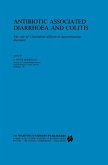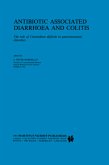This book in the Topic Pack series covers some of the commoner and some of the rarer nephrological diseases. Owing to their diverse nature a 'traditional' approach, i.e. one considering pathogenesis, symptoms, signs and treatment, has been used. This inevitably leads to some repetition but the reader should be con stantly reminded that apparently trivial symptoms such as fre quency, dysuria, etc. may be the clues to more fascinating pathol ogy. In addition, where relevant, attempts have been made to remind the reader of some basic renal physiology in order to understand the results of pathological changes, those changes being illustrated by renal histology, specimens and radiographs. John Walls, Leicester General Hospital, 1. Urinary Tract Infections Infection of the urinary tract is the commonest renal disease seen in nephrological practice and second only to infections of the respiratory tract in overall clinical practice. With the widespread and early use of antibiotics over the past three decades it was hoped that some of the problems caused by urinary tract infec tions would be eliminated. However, this has not proved so, as the figures from the European Dialysis and Transplant Association Register (1975) have shown (Figure 1). 'Pyelonephritis' is the Figure 1. The main causes of end stage renal failure (from the European Dialysis and Transplant Association Register 1975).








